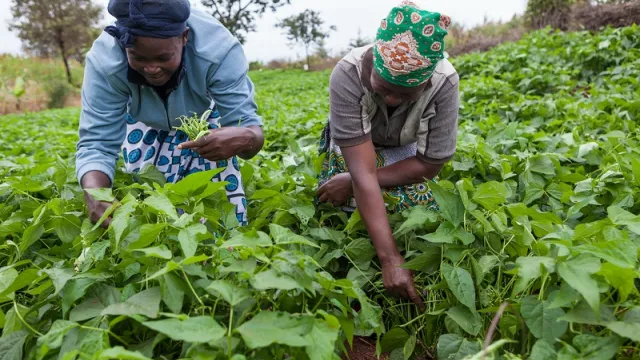Stable agriculture could see Kenya avoid worst of Russia-Ukraine war — Analysts

Stable agriculture could see Kenya avoid worst of Russia-Ukraine war — Analysts
Analysts have tipped Kenya’s economy to avoid the worst out of the roiling fallout from the ongoing Russia-Ukraine war even as commodity prices including crude oil post sharpest price swing in decades.
While oil prices have been volatile in recent weeks, swinging between gains and losses, they are roughly around 80 percent higher compared to a similar period a year ago.
Russia, which has been waging a war in Ukraine for over a month now, ships about 5 million barrels of crude oil per day according to the International Energy Agency. It is the world’s third-largest oil producer after the US and Saudi Arabia.
Analysts at EFG Hermes, which represents the largest broker on the Nairobi Securities Exchange (NSE) by market share have tipped the country’s agriculture sector to offset the impact of the war.
EFG’s confidence in the domestic economy has been firmed up by its appraisal of the market from a neutral weighting to overweight within its emerging frontier emerging markets (FEM).
“We like Kenya in this current volatile environment. When you look at what’s going on with reference to the war, commodity prices, the agricultural sector should keep Kenya relatively stable and compensate for the increase in energy prices,” noted EFG Hermes Kenya Head of Equities Brokerage Muathi Kilonzo.
Besides the overweight reclassification of the Kenya market, EFG Hermes has added lender Equity Group to its FEM stocks watch-list where it joins the country’s only other stock on the list, Safaricom Plc.
Equity’s appeal stems from its recent acquisition of the Banque Commerciale Du Congo (BCDC) which made the lender the largest bank in the Democratic Republic of Congo (DRC).
Read also: Generous Kakuzi pays more dividends than earnings
The bank is now seen as central in the East Africa integration agenda which starts with the addition of the DRC to the East African Community (EAC) custom union at the end of this month.
Despite concerns over Kenya’s heavy indebtedness and a potential drag from the upcoming August 9 General Election, the country is largely seen to be on a stable trajectory.
While the Kenyan shilling has come under pressure across recent months from a greater dollar demand and widening current account deficit, the unit is expected to perform relatively better than its FEM peers this year.
“We don’t see more than a five percent depreciation in the currency. The shilling will do better than other currencies in frontier markets. We’ve seen a lot of depreciation elsewhere,” stated EFG Hermes Head of Frontier Research Kato Arnold Mukuru.
Having taken a significant hit from the COVID-19 pandemic, the Kenyan economy tanked to post a negative 0.3 percent growth rate in 2020, the first contraction in nearly three decades.
The Kenyan economy has nevertheless turned around from the pandemic hiccups and is tipped to have grown by nearly eight percent according to estimates by the National Treasury.
Meanwhile, data from the Kenya National Bureau of Statistics (KNBS) puts growth at an average 7.9 percent through the first three quarters of 2021 with the economy receiving a bounce from low base effects after the lifting of most COVID-19 related restrictions on commerce.



